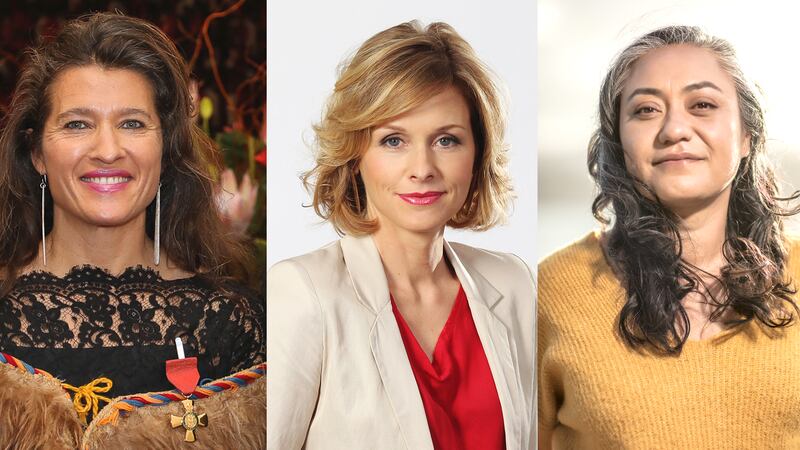Broadcaster Mihingarangi Forbes was one of three Māori winners at the Women in Film and Television (WIFT) awards last night.
She received the Te Māngai Pāho te reo Māori champion award which honours a production company or individual whose work makes a significant contribution to the increased use and knowledge of Te Reo Māori me ngā tikanga. Past winners include Stacey Morrison and Henewehi Mohi.
“I feel very honoured, and I feel a little bit like I don’t deserve it,” she said.
“In this political environment, it’s very important to acknowledge, accept, and lift our reo, to kōrero Māori, every day in all places because we have come too far to stop now. We have come too far to let a government tell us that they are not going to let us champion our reo.”
Forbes started learning te reo Māori only when she was 19 years old and the awards said had played a crucial role in shedding light on important issues and amplifying the voices of marginalised communities, enriching the cultural and social dialogue.

The WIFT Awards were established in 2004 to recognise, celebrate, and encourage the achievements of women in film, television and digital media.
Desray Armstrong was the recipient of the Achievement in Film Award for her feature film Juniper.
“We have a lot of challenges in this sector but looking at all of you here, I think we are going to be alright. We just have to keep talking, and just keep pushing each other.”
Chelsea Winstanley (Ngāti Ranginui, Ngāi Te Rangi) won the Imagezone Entrepreneurship Award, which recognises exceptional business achievement, and contribution to the future health and viability of the New Zealand film and television industry.
Renowned for her work on critically acclaimed films such as What We Do in the Shadows and Jojo Rabbit, Winstanley has played a pivotal role in showcasing New Zealand’s cinematic talent on the global stage.
She shared a powerful message with the audience at St Mathews-In-the-City Church during her acceptance speech.
“That’s what we do as women. We are constantly trying to reinvent ourselves because we need to be seen in every place so that the young women that are coming up behind us can see that they too can occupy these spaces.”


